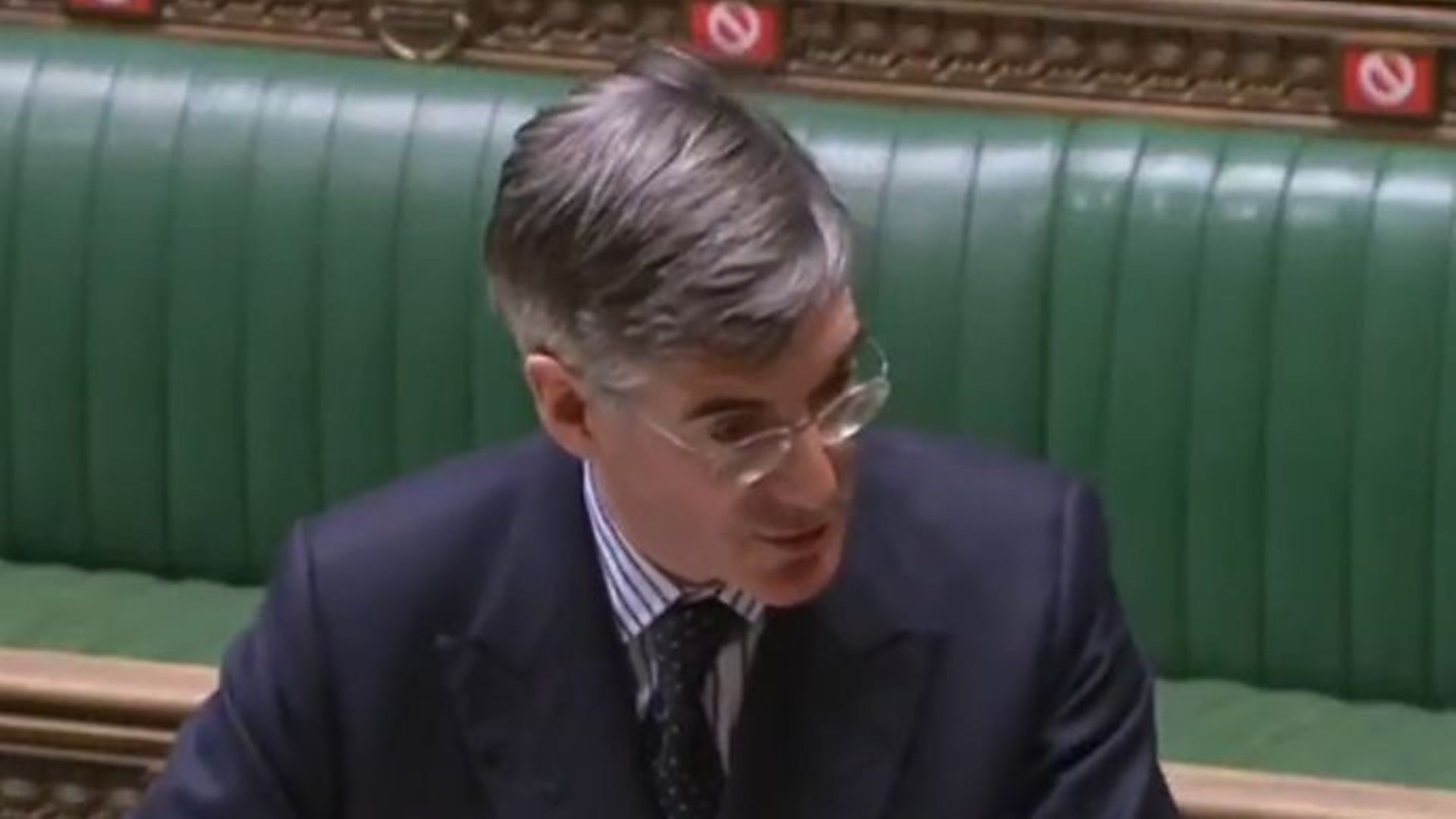
Jacob Rees-Mogg has thanked Black Lives Matter (BLM) protesters – who he called the “woke brigade” – for removing statues of historic British figures in a bizarre speech in the House of Commons.
Rees-Mogg claimed BLM demonstrators had in fact made people more aware of statues they walk past every day.
Responding to a request for a debate on protecting Britain’s history and heritage, Rees-Mogg told the Commons: “In a funny way the woke brigade has done the nation a service because they’ve reminded people of the great heroes that we have.
“Lots of statues that people used to walk past and not really notice, they suddenly think: ‘Gosh, that’s Gordon of Khartoum, he’s an interesting figure, I want to know more about him and what he did to put down the slave trade in the Sudan’.
“I think this has helped remind people of our history and that it’s a history we can be enormously proud of.”
He went on to day the “British people” achieved “great things in this country and across the globe”.
Pointing to the US as an example, he said: “The United States, when it sought its freedom, wanted to ensure that it had the freedoms that the people of the United Kingdom were entitled to at home.
“It was a most fantastic history that we should be proud of and celebrate in our statues and in our education.
“So we should be grateful that the wokery classes have had this effect on improving our understanding of our noble history.”
Some MPs have been campaigning for a new law to protect war memories from being desecrated and to make it easier to prosecute vandals after BLM protesters town down a statue of slave trader Edward Colston in Bristol.
Earlier, Rees-Mogg raised eyebrows after he shifted the blame for the end of a music visa scheme on to the EU.
The Commons leaders shrugged off criticism for No 10’s decision to reject an extension of a programme that allowed performers to tour Europe visa-free for 90 days.
“The position on musicians is extraordinarily clear,” he told the Commons. “Her Majesty’s government said during negotiations, we made proposals that would have allowed musicians to travel and perform in the UK and the EU easily without work permits based on input from UK music and the musicians union.
“The EU rejected these proposals, therefore musicians are in the position they are in because the EU rejected those proposals.”
Brussels officials have flatly denied the claim, with one telling the Independent: “The UK refused to agree because they said they were ending freedom of movement. It is untrue to say they asked for something more ambitious,” adding: “There has to be reciprocity.”
Warning: Illegal string offset 'link_id' in /mnt/storage/stage/www/wp-includes/bookmark.php on line 357
Notice: Trying to get property 'link_id' of non-object in /mnt/storage/stage/www/wp-includes/bookmark.php on line 37






